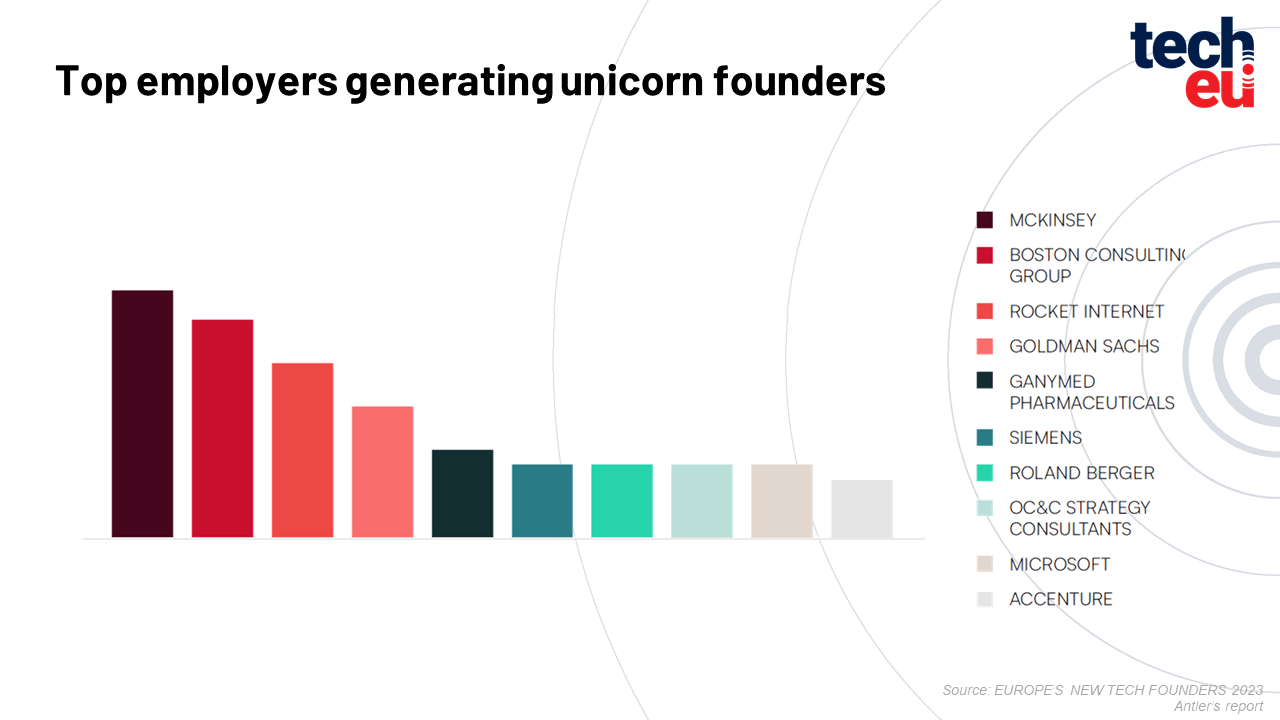Although investments dropped off a cliff in 2023 when compared to previous years, layoffs abound, and significant impact of socio-macroeconomic instabilities, from the perspective of new founders entering the market, Europe is on the right path.
Published by Antler, the firms' "Europe’s New Tech Founders 2023" report analysed the academic history, professional expertise, and demographics of 845 unicorn founders, 2,500 founders participating in Antler residencies, and more than 70,000 aspiring founders who had applied to Antler in Europe and arrived at some promising figures.
Over the last decade, the past 18 months presented the European tech scene with some of its biggest challenges. However, the data Antler collected showed that the ecosystem is just as strong as it was before. The fundamentals are unchanged, and founders are pursuing growth opportunities amidst the downturn.
As we've seen in the cyclical nature of our industry, the current economic climate is increasing founder appetite across the ecosystem. Some of the key findings of the report demonstrate:
- 9 out of the top 10 tech companies generating aspiring founders in Europe made layoffs in the last three years
- In 2022, applications from founders working at tech companies that have made layoffs increased by 111%
- There was a 75% increase in founder applications in 2022 compared to 2021
- Since 2021, the number of aspiring founders from Big Tech (+21%) and large startups (+27%) has grown significantly
- Engineer is the job title that has grown the most since 2021 among aspiring founders
A fresh era of the European tech founders
The end of 2022 and the beginning of 2023 were characterised by a significant number of layoffs and redundancies. On the surface, it may seem to us that these had negative consequences, However, Antler’s research showed a direct correlation between layoffs and new tech founders.
According to their data, in the 12 months after a tech company announced layoffs, there has been a huge increase (391%) in applications from employees looking to become aspiring tech founders.
Just in 2022, the number of employees leaving tech companies that made layoffs to become tech founders increased by 111%. According to the report, the tech companies that generated the most new tech founders in Europe after announcing layoffs were Ericsson, Uber, and Booking.com.
The report also shows that Europe’s new tech founders are now coming from Unicorns, large tech startups, and Big Tech companies which can be seen as a clear sign of the growing maturity of Europe’s tech ecosystem. These new founders are "the children“ of Spotify, Klarna, and Revolut, and in the very beginning, it makes them more diverse, international, and with a different professional background than their predecessors.
Even more, they are determined to combine commercial success with a positive impact on society and the world, building technologies in sectors such as climatetech, healthtech, and energy. Europe is continuing to develop its own pipeline of founder talent.
When it comes to demographics, new tech founders are five times more likely to be women and represent three times more nationalities than Europe’s existing Unicorn founders. Some of the key findings of the report show that:
- There is a 300% increase in the number of nationalities represented by Europe’s new tech founders compared to Europe’s Unicorn founders
- There is a 525% increase in the gender diversity of Europe’s new tech founders compared to Europe’s Unicorn founders and
- 51% of Europe’s new tech founders are willing to move the country to create their startup
“This data brings to life what we experience every day working with founders from day zero of their journey. In the last 12 months alone, we’ve invested in female rocket scientists sending satellites into space, mothers building a family at the same time as a proptech business, engineers who’ve found a way to extract carbon dioxide from the atmosphere and fintech experts keeping small businesses afloat during the economic downturn.
Their backgrounds are different, but what unites them is the conviction that technology can make the world a better place. When I consider the founders I spend time with every day, I don’t think there’s ever been a more exciting time in the European tech ecosystem.” Christoph Klink, Partner at Antler
And who are Europe’s unicorn founders?
The report states that Europe’s unicorn founders remain notable for their homogeneity, meaning that the typical unicorn founder is a man (96% male) building a tech company in their home country (three quarters). More than 40% of unicorn founders have startup experience, while most of them have business backgrounds.
A third of Europe’s unicorn founders went to the same 20 universities. The University of Oxford leads the list of the academic institutions that have generated the most unicorn founders in Europe. According to the report, its followed by the WHU - Otto Beisheim School of Management and Stockholm University of Economics.

McKinsey, Boston Consulting Group, and Rocket Internet are the companies that Europe’s unicorn founders most commonly worked at before starting the companies that have reached billion-dollar valuations.

The interesting aspect is the comparison of European countries that generate the most unicorn founders. As stated in the report, Germany produces unicorn founders from consultancies, whilst Dutch founders come from corporates. Sweden has one of the highest rates of home-grown founders, whilst the UK has the most international founders.
Thinking of becoming a tech founder in Europe? Now is the best time!
There are a couple of reasons that now is the best time to become a tech founder in Europe, according to the report.
First, it is obvious that there is a new founder landscape where unicorns are producing new generations of founders, which confirms the increasing maturity of the European tech ecosystem.
Second, it is the result of the global socio-macroeconomic trends that made technology more accessible than ever before. But also, it is the result of the tech downturn, representing the beginning of a new opportunity cycle for the new tech founders.
The full report "Europe’s New Tech Founders 2023“ can be downloaded here.



Would you like to write the first comment?
Login to post comments